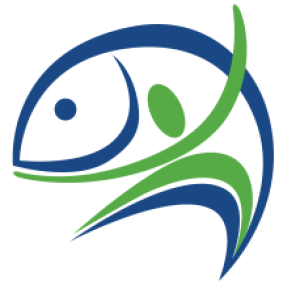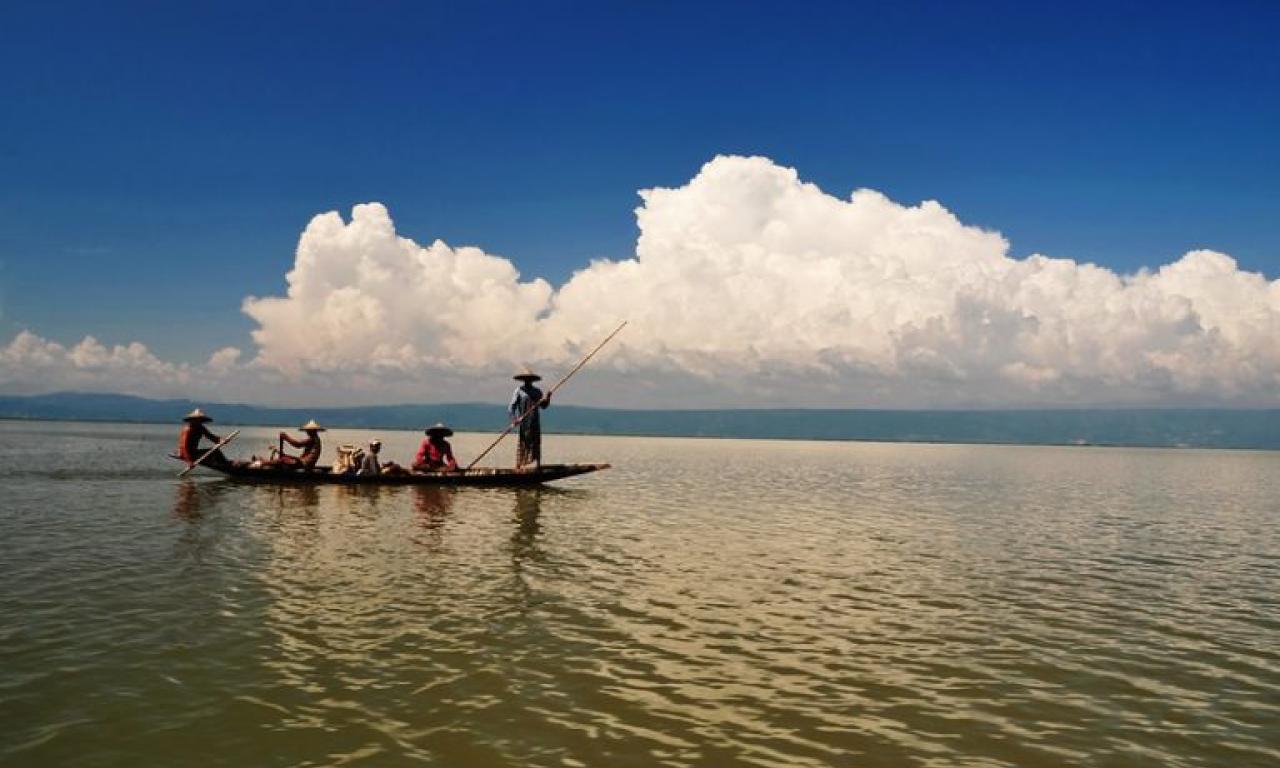
WorldFish has announced a new, restructured leadership team to guide the implementation of its 2030 Research and Innovation Strategy: Aquatic Foods for Healthy People and Planet, which sets a pathwayto end hunger and advance the Sustainable Development Goals by 2030 through the transformation of food, land and water systems.
WorldFish has announced a new, restructured leadership team to guide the implementation of its 2030 Research and Innovation Strategy: Aquatic Foods for Healthy People and Planet, which sets a pathwayto end hunger and advance the Sustainable Development Goals by 2030 through the transformation of food, land and water systems.
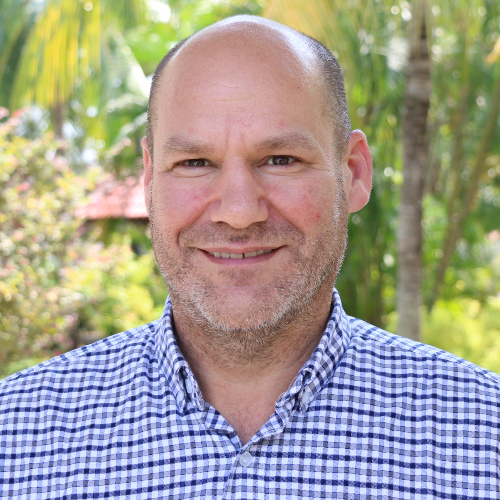
Prof. Eddie Allison will head the new leadership team, appointed as the interim Director of Science and Research. In 2020, Allison was listed by Clarivate/Web of Science in the top 0.1 percent most cited of the world’s researchers in the cross-disciplinary category. His highly influential livelihoods and food systems work spans the globe thanks to his research, teaching, and policy experience in fisheries and aquaculture with links to sustainable development in sub-Saharan Africa, Asia, Oceania, Latin America, North America, and Europe.
From Italy and the UK, Allison is an interdisciplinary scholar with over 30 years of academic and policy experience, who works closely with researchers across social and natural sciences and the humanities, as well as stewards of natural resources in communities, civil society organizations, development actors, governments and the private sector.
He currently advises the High Level Panel for a Sustainable Ocean Economy, a global initiative headed by 14 world leaders on a mission to transform the way in which we can protect and use the ocean. He is also a science advisor to the non-profit Oceana and has honorary and visiting professorships at Lancaster University’s Environment Center and the University of Washington’s School of Marine and Environmental Affairs.
“I am thrilled to take on this new role and work together with our staff and our many partners around the globe to shape a game-changing research and innovation agenda on aquatic food systems for WorldFish, for One CGIAR, as well as for millions of people whose livelihoods, nutrition, health, and well-being depend on aquatic foods. Aquatic food systems are critical to meeting shared global aspirations for establishing inclusive, efficient, sustainable, nutritious, and healthy food systems capable of achieving the SDGs by 2030,” said Allison on his appointment to the new role.
“Our priority is to better integrate fish and other aquatic foods into the global agricultural research and policy agenda, and link the latter to the emerging blue economy and the ocean space, whose assets such as fisheries, shipping lanes, and tourism are worth USD 24 trillion and produce an annual value of USD 2.5 trillion from their outputs. In this way, we will ensure a full representation of the food system, address the complex links among all food, land, and water systems, and unlock an ocean of opportunities for healthy people and a sustainable planet,” he said.
Allison’s role is complemented by three global research leadership appointments:

Dr. Shakuntala Thilsted, appointed Global Lead for Nutrition and Public Health, is a world-renowned nutrition expert known for her pioneering work on nutrition-sensitive approaches to fisheries and aquaculture in Bangladesh, India, Cambodia, Zambia—among many other countries.
From Trinidad and Tobago, Thilsted’s research has led to ground-breaking insights and award-winning innovations that have increased access, supply, and affordability of diverse and healthy diets with fish and other aquatic foods for millions of vulnerable people living in low-and middle-income countries, particularly women, children, and refugees.
Thilsted is part of the High Level Panel of Experts (HLPE) on Food Security and Nutrition. She is also the 2021 UN Food Systems Summit Vice-Chair for Action Track 4: Advance Equitable Livelihoods.
“Combating malnutrition—in all its forms—and diet-related noncommunicable diseases represents one of the greatest health challenges around the globe. Multiple essential nutrients from aquatic foods are critical to human health and especially to cognitive development in children in their first 1000 days,” said Thilsted.
“Nutrient-rich aquatic foods offer a life-changing option for the 2 billion people who lack access to healthy foods. Aquatic foods represent an important but largely overlooked solution. Our new strategy lays out an evidence-based pathway to boost the supply of and demand for aquatic foods to safely and sustainably nourish billions of people, our nations, and our planet,” she added.
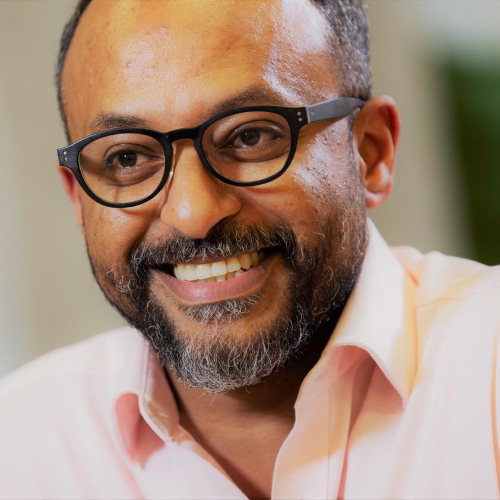
Dr. Essam Yassin Mohammed, appointed Global Lead for Climate Resilience and Environmental Sustainability, is a leading interdisciplinary systems thinker, researcher, and policy adviser with deep roots in the economics of the ocean and fisheries. His research focuses on the use of market and non-market-based instruments to align incentives and investments and accelerate the transition towards climate-resilient and sustainable aquatic food systems.
From Eritrea, Mohammed’s research has shaped and informed many national government policies in Africa, Asia, and Latin America. He is a member of the Group of Experts of the UN’s World Ocean Assessment II, a pioneering global integrated assessment that examines the scale of human impact on the marine environment and the value of the ocean to human socio-economic wellbeing.
“Covering more than 70 percent of the surface of our planet, the ocean and seas provide half of the world’s oxygen, sequester carbon dioxide, and serve as home to 80 percent of life on earth. About 3.3 billion people worldwide rely on wild-caught and farmed aquatic foods as their main animal-source food. The livelihoods of millions of people depend on marine and freshwater resources and related ecosystem services,” said Mohammed.
“These ecosystems are under immense pressure due to overexploitation, habitat degradation, greenhouse gas emissions, agricultural and industrial land conversion, depleted water resources, plastic and runoff pollution, and the unsustainable way in which food is generally produced and consumed. Successfully transforming food systems in the face of climate change will be futile if aquatic food systems are left out of the critical equation to feed 10 billion people by 2050 while ensuring climate resilience and environmental sustainability.”
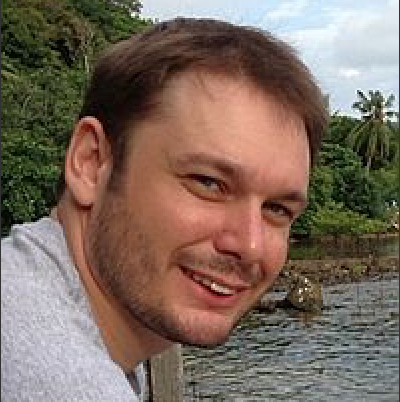
Dr. Ben Belton, appointed Global Lead for Social and Economic Inclusion, is an interdisciplinary social scientist and a leading researcher on the political economy and political ecology of aquatic food systems in South and Southeast Asia. He shares a joint appointment with Michigan State University as an associate professor of international development. His work focuses on the links between value chains and food systems, rural development and agrarian change, food and nutrition security, social well-being, and the environment.
From the UK, Belton is currently leading critical research on the impacts and responses of COVID-19 disruptions to aquatic food systems in Africa, Asia, and globally and contributing to the work of the One CGIAR COVID-19 Hub.
“Aquatic food systems are critical sources of employment and income for millions of women and men in Africa, Asia, and around the world. The COVID-19 pandemic and subsequent lockdowns are creating health and economic crises, leading to an increased incidence of poverty and food and nutrition insecurity,” said Belton.
“The food system has been seriously disrupted, with impacts occurring at multiple levels and across supply chains. For hundreds of millions of people, aquatic foods are an integral part of their livelihoods, diets, and culture. Part of these populations are women, migrant workers, and a large informal sector that may not see direct aid from governments or financial institutions. We cannot afford to leave these people behind if we are to build forward better.”
The science and research leadership team is tasked with implementing the research transition plan towards One CGIAR and developing innovative initiatives and partnerships mandated by the 2030 WorldFish Research and Innovation Strategy. This strategy was launched at the end of last year and was made possible through an organizational development grant by the Bill & Melinda Gates Foundation, said WorldFish’s Director General Dr. Gareth Johnstone.
“Our strategy is critical to our institutional transition toward One CGIAR and our bold aspiration to become the go-to global thought leader on aquatic food systems within One CGIAR and in the wider scientific and policy community. The Green Revolution, which focused primarily on land crops and livestock, has led to improved food and nutrition security and livelihoods for billions of people over the past 70 years,” he said.
“However, with emphasis on crop productivity, its benefits are marked by geographical disparities, as well as significant health and environmental costs. We must now reimagine the way we link and transform all food, land, and water systems for healthy and sustainable diets that work for both people and the planet, within the One CGIAR and beyond.”
Changes to the WorldFish executive leadership team have also been made to guide organizational transformation, to sharpen the agility and responsiveness of research and innovation operations, to adapt to new ways of working and collaboration, and to develop innovative partnerships and funding models:

Tana Lala-Pritchard, appointed Executive Director, Strategy, Innovation, and Communications, is a dynamic transformational change leader who has spent the past 17 years developing and implementing strategies at corporate, business, and functional levels to support the social impact mission of a host of international organizations, development agencies, CGIAR centers and research programs across Africa, Asia, Middle East, Pacific, and Southeast Europe regions. In 2015, her strategy and advocacy work supported the efforts of the global Economics of Land Degradation Initiative that led to the adoption of specific evidence-based targets on Climate Action (SDG13) and Land Degradation Neutrality (SDG15.3) by the UN General Assembly under the framework of the 2030 Agenda for Sustainable Development.
From Albania, Lala-Pritchard is a graduate of the London School of Economics and Political Science and the University of Oxford. In 2020, she was the recipient of the prestigious fellowship on Strategy and Innovation by the Säid Business School at the University of Oxford, awarded to Exceptional Women Leaders Under 40.

Montgomery Simus, appointed Executive Director, Business Development and Partnerships, is a global executive who spent much of the past two decades on the deployment of catalytic philanthropy, innovative social finance, and equity investment capital to high-growth, purpose-driven enterprises that serve millions of stakeholders in emerging markets worldwide.
From Canada, Simus is passionate about impact philanthropy in the fields of the environment, health, education, and enabling infrastructure and has developed his inclusive business-driven emerging market development experience in more than 100 nations around the world. A graduate of Yale and Harvard, he served as a Senior Advanced Leadership Initiative Fellow at Harvard from 2015 – 2017, focusing on research related to the water-energy-food nexus.

Marion Barriskell, appointed Executive Director, Corporate Services, is a global executive who has held a number of senior leadership roles in strategic and operational Finance, Procurement and IT at WorldFish, the British Council, KPMG and Transparency International.
From Kenya, Barriskell is a graduate of the University of Dundee, a qualified chartered accountant and an accredited counter fraud specialist. She is highly skilled in shaping structural and operational reforms and passionate about delivering transformational organizational change in support of research, innovation and social impact.
“I have assembled a stellar research and executive leadership team fit for the size of our ambition. Together with our partners and counterparts in One CGIAR, we will shape our shared food systems transformation agenda. We will sharpen the agility and responsiveness of our research and operations, adapt to new ways of thinking and working, in order to secure more funding and greater relevance and impact for scientific research on food, land and water systems.” said Johnstone.
The leadership team will focus on building on WorldFish’s outstanding 45 years of experience in fisheries and aquaculture research in low-and middle-income countries, as well as on the latest scientific evidence emerging from the CGIAR Research Program on Fish Agri-food Systems and partners. Mobilizing a global research and innovation agenda is critical to expanding the important but largely overlooked role of aquatic foods in meeting the critical challenges associated with sustainable development. As part of One CGIAR, the world’s largest agricultural innovation network, WorldFish is poised to shape the new frontiers of agricultural research by bridging food production systems in land and water.
